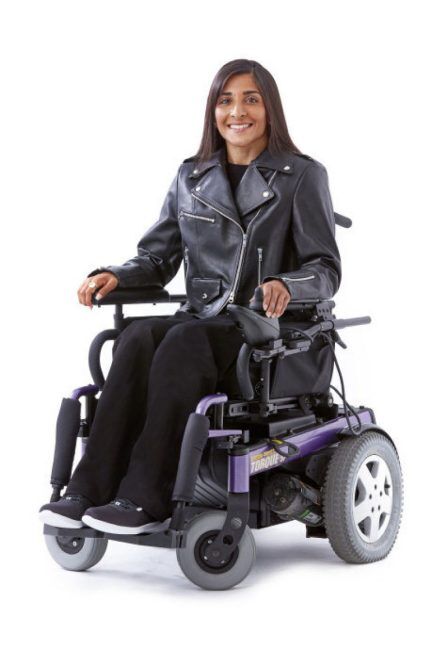From Coveted to Canceled: Camilleri’s Journey of Designing for the Disabled Community
April 29, 2021
Adaptive wear is starting to become more recognized among different designers and brands. Adaptive designers, such as Izzy Camilleri, are paving the way for a more inclusive environment in the fashion world.
Camilleri is known for designing outfits for many A-list celebrities including Meryl Streep, who wore Camilleri’s designs in the 2006 film “The Devil Wears Prada.” Everything was going great for Camilleri until she found a new mission.
In 2005, a partnership with Toronto Star reporter Barbara Turnbull, a wheelchair user, gave Camilleri insight into an underrepresented community in the fashion world. Turnbull says, “When I was in the hospital one of the things I was wondering about was what could I possibly wear?” Driven by these injustices, Camilleri realized her real calling and started creating custom clothing for Turnbull.
“Working with her, opened my eyes to her unique clothing needs,” Camilleri recalled.
By June 2009, Camilleri created IZ Adaptive, a line of chic basics for people in wheelchairs. This new collection pioneers the way for adaptive clothing while pushing the boundaries within the fashion world. Her designs help make the fashion community more accessible, not just through her clothing, but also through raising awareness around disability issues.
Camilleri also works to bring awareness to the different needs of people within the disabled community. The newest IZ Adaptive line will cater to ‘seated’ wheelchair users while also introducing a number of popular items for the ‘standing’ community who are in need of adaptive clothing. Aware that her clients will spend much of their days seated, Camilleri designed clothes that are made to bend. The pants have adjusted rises, so they don’t buckle in front or ride down the back. Her coats, on the other hand, are cropped in the back and longer in the front, so they look full-length, but don’t leave the wearer sitting on bunches of unwanted fabric.
“I really needed to understand the demographic because if I didn’t, I could easily hurt someone,” Camilleri states. “It’s also about inclusion and how great these clothes look on everyone.”
She explains that her designs are about allowing people to express their personality and give them a sense of self no matter their disability.
“This is the most important and inspiring work of my career,” Camilleri said.
Camilleri works with the incredibly under-served and ignored community to make sure her designs are exactly what the community needs. IZ Adaptive is showcased on a platform that engages the shopper, while using models who have disabilities to bring in a sense of relatability for customers with disabilities. Even Oregon State University students, such as Cameo Perrells, a Nutrition major and president of Oregon State University’s Disabled Students Union, own Camilleri’s designs.
Perrells states that, “I have heard of IZ Adaptive. I own their peacoat although I haven’t had the chance to break it this winter.”
She says, “I think it’s great that big brands are making clothes more accessible for people with disabilities. However, since disability isn’t a one size fits all I lean more towards having a tailor or seamstress. Even though the peacoat from IZ is great I still have to make a few adjustments for the perfect fit. Sometimes it can be cheaper to buy something off brand, on sale, or second hand and get it hemmed.”
Camilleri shared that she was shunned by the fashion community and that she stopped getting invited or included in fashion related events. Instead of inspiring the fashion world to reevaluate its beliefs on adaptive wear, her work confused them and people claimed not to see the fashion in the new work and she quickly became ‘irrelevant.’
“My fashion colleagues couldn’t understand why I left the world of high fashion to create this particular line of clothes,” she expressed.
But Camilleri, unfazed by the negative criticism, continued designing having found a sense of purpose, a mission and the possibility of making a difference in the world. It’s a social issue: people with disabilities are marginalized in all sorts of ways. People need to wake up, and fashion’s a way to do that.
“IZ was created to give people with disabilities access to beautiful fashion,” Camilleri says, “When you buy from IZ and other adaptive brands, you’re helping to make the world a little more accessible for everyone.”


